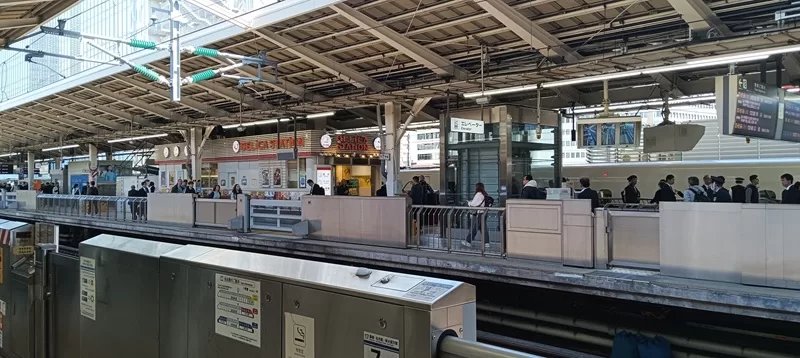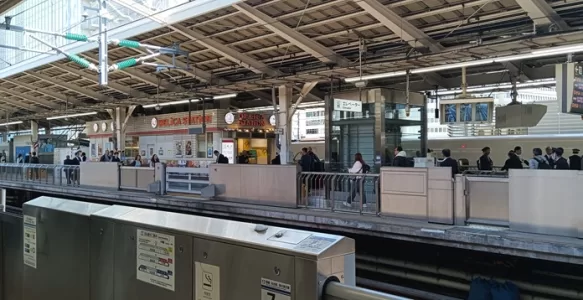Traveling through Japan is a unique experience that goes far beyond the familiar imagery of temples, exotic cuisine, and advanced technology. This Asian country, with its rich cultural heritage and impressive infrastructure, offers foreign visitors sensations that are difficult to express in words alone. Spending 15 days in Japan made it clear that, more than admiring landscapes or trying new foods, traveling there is a true exercise in observation, respect, and admiration for a people who value the smallest gestures.

First Impressions: Precision and Kindness
Klook.comFrom the moment of arrival, one of the most striking aspects of Japan is its level of organization. Even in busy airports such as Narita and Haneda, everything flows calmly and efficiently. Signage is clear, lines are orderly, and staff are exceptionally helpful. At baggage claim, attendants handle luggage with care, placing each suitcase gently on the carousel with labels facing upward—no rough handling or careless stacking.
This attention to detail continues throughout every aspect of public life—from bus drivers to bullet train operators. Uniforms are immaculate, movements are precise and synchronized, and respect for the passenger is always evident.
Politeness Expressed Through Gestures
Throughout the journey, countless spontaneous examples of Japanese courtesy emerge. A light bump on the subway is immediately followed by a sincere “sumimasen” (excuse me). If someone mistakenly walks in front of you on the sidewalk, they stop to apologize with a polite nod. These small gestures, often overlooked in other countries, carry profound cultural meaning in Japan.
Greetings have their own elegance. At cable car stations, staff bow to passengers on arrival and departure. At airports, ground staff bow and wave to departing aircraft as if sending off each passenger personally. Onboard, flight attendants begin service with a subtle bow and a discreet smile—further reinforcing the deep-rooted respect embedded in every human interaction.
Hospitality Beyond Expectations
In Shinjuku, one of Tokyo’s busiest transportation hubs, a visit to the tourist information center revealed just how far Japanese hospitality can go. A smiling attendant, dressed in traditional kimono and fluent in English, offered assistance so warmly that the simple act of asking for directions became a memorable highlight of the trip.
This level of service is common throughout the country. Even those who do not speak English will go out of their way to help. On several occasions, strangers noticed I looked lost and approached me to offer help. This willingness to assist reflects a culture grounded in empathy and service.
Impeccable Cleanliness in Public Spaces
One of the most remarkable aspects of visiting Japan is walking through its clean streets—free of litter even in the busiest districts. Public restrooms are free, spacious, and surprisingly clean. Whether in tourist areas or residential neighborhoods, facilities are typically equipped with electronic toilets, ample toilet paper, and soap at the sinks, though hand dryers are not always available.
At a hotel in Narita, I watched a staff member using adhesive tape to remove hair and dust from the entryway carpet. In a public park, an elderly gardener meticulously trimmed grass with scissors. In a commercial building, a senior gentleman quietly cleaned a stairwell mirror with care and focus. These scenes are not exceptions—they are part of everyday life in Japan.
The Professionals Behind Daily Life
Another impressive aspect of Japanese society is the number of elderly individuals actively working in public roles—not out of necessity, but as a reflection of dignity and social integration. They manage traffic flow at busy intersections, guide pedestrians near construction sites, and assist with safety protocols—always wearing reflective vests and acting with respectful gestures.
In subways and train stations, staff manage passenger movement with precision using coordinated hand signals and whistles. They monitor door operations, ensure safe boarding and disembarking, and maintain order without raising their voices. Their calm demeanor and professional conduct are exemplary.
Commitment to Efficiency
Japan is famously committed to punctuality. Trains depart and arrive exactly on time, with minimal margin for error. If a delay occurs—even as short as one or two minutes—announcements are made, and in some cases, formal apology letters are issued to passengers needing to justify their tardiness at work.
Efficiency extends to dining experiences as well. In restaurants, even during peak hours, service is prompt and well-organized. In traditional establishments, guests can observe meal preparation from the counter, witnessing the care put into both presentation and flavor.
Tradition and Technology in Harmony
One of the most fascinating aspects of traveling in Japan is the coexistence of tradition and innovation. It’s common to find a thousand-year-old Buddhist temple next to a high-tech convenience store offering self-checkout and contactless payments. Far from replacing traditional values, technology seems to enhance them.
This balance is also evident in transportation. The Shinkansen (bullet train) is a modern marvel of speed and precision, but the respectful bow of conductors and the meticulous cleaning of train cabins still reflect deep-rooted service traditions.
The Emotional Impact of Being in Japan
After 15 days in the country, the feeling that remains is one of completeness. Japan captivates not only with its beauty and attractions but with the way it treats both citizens and visitors. Every observed detail, each respectful gesture, and all examples of care reinforce the sense that this is indeed a special place.
It’s impossible not to be moved by the spontaneous kindness, the concern for collective well-being, and the social harmony. Traveling through Japan changes how we perceive the world and how we interact with others. Tourism there is not just a visit—it is a profound experience.
An Unmistakable Desire to Return
Leaving Japan, one thought is clear: every minute was worth it. The journey was not only a touristic adventure, but an enriching lesson in respect, organization, empathy, and care for others. It is a country that prompts reflection on our own behaviors, how we function in society, and what we truly value in human interaction.
Japan has rightfully earned its excellent reputation in global tourism. Not merely for its iconic temples, modern cities, or natural beauty—but above all, for the experience it offers travelers. An experience that begins with the smallest of details and ends in deep admiration for a society that, despite being among the most technologically advanced in the world, has preserved the essence of respect and kindness.


